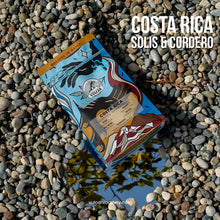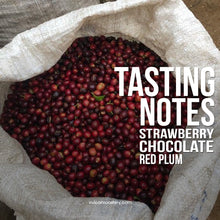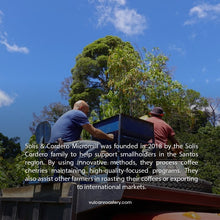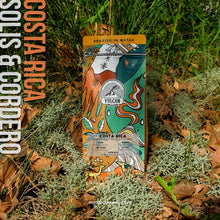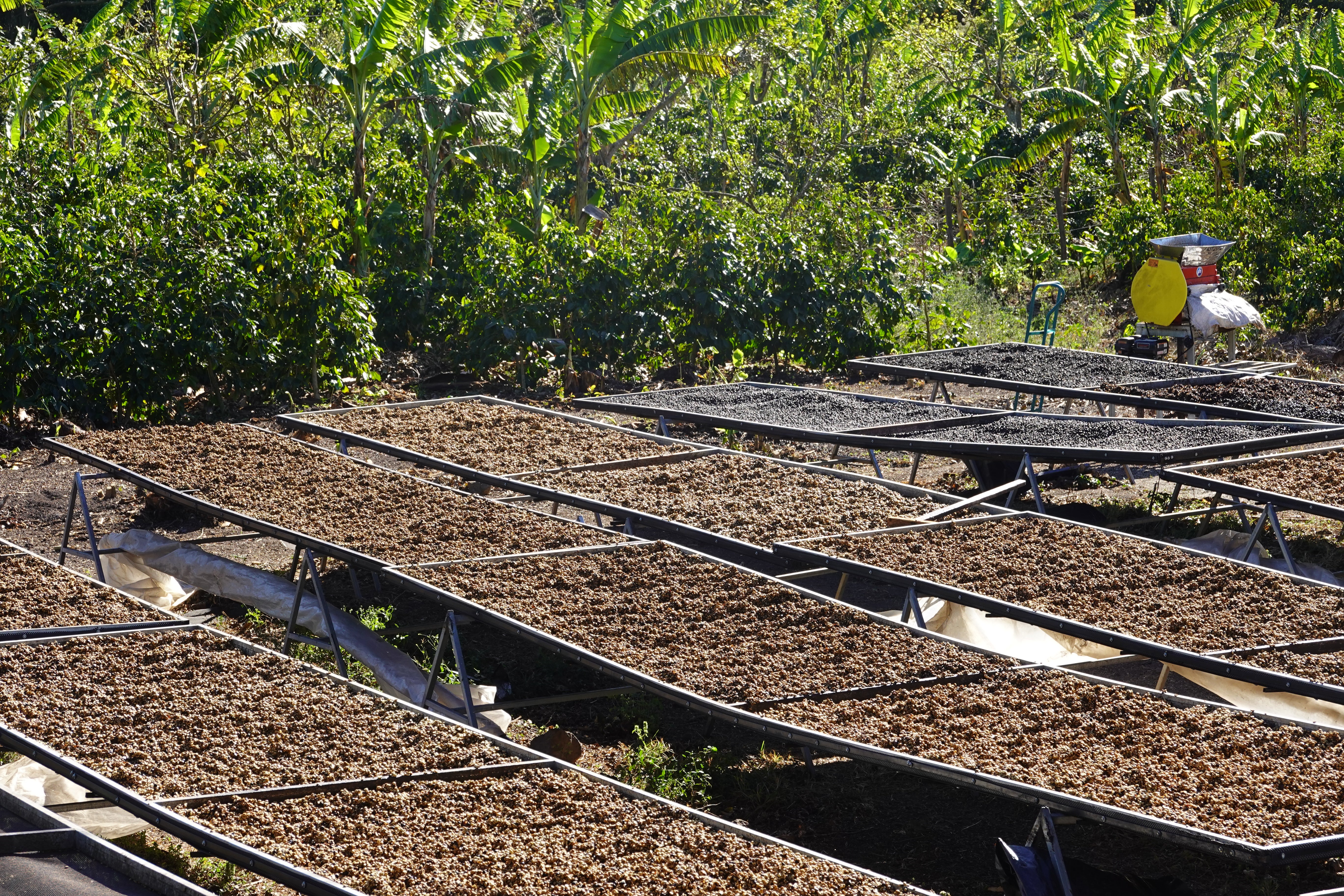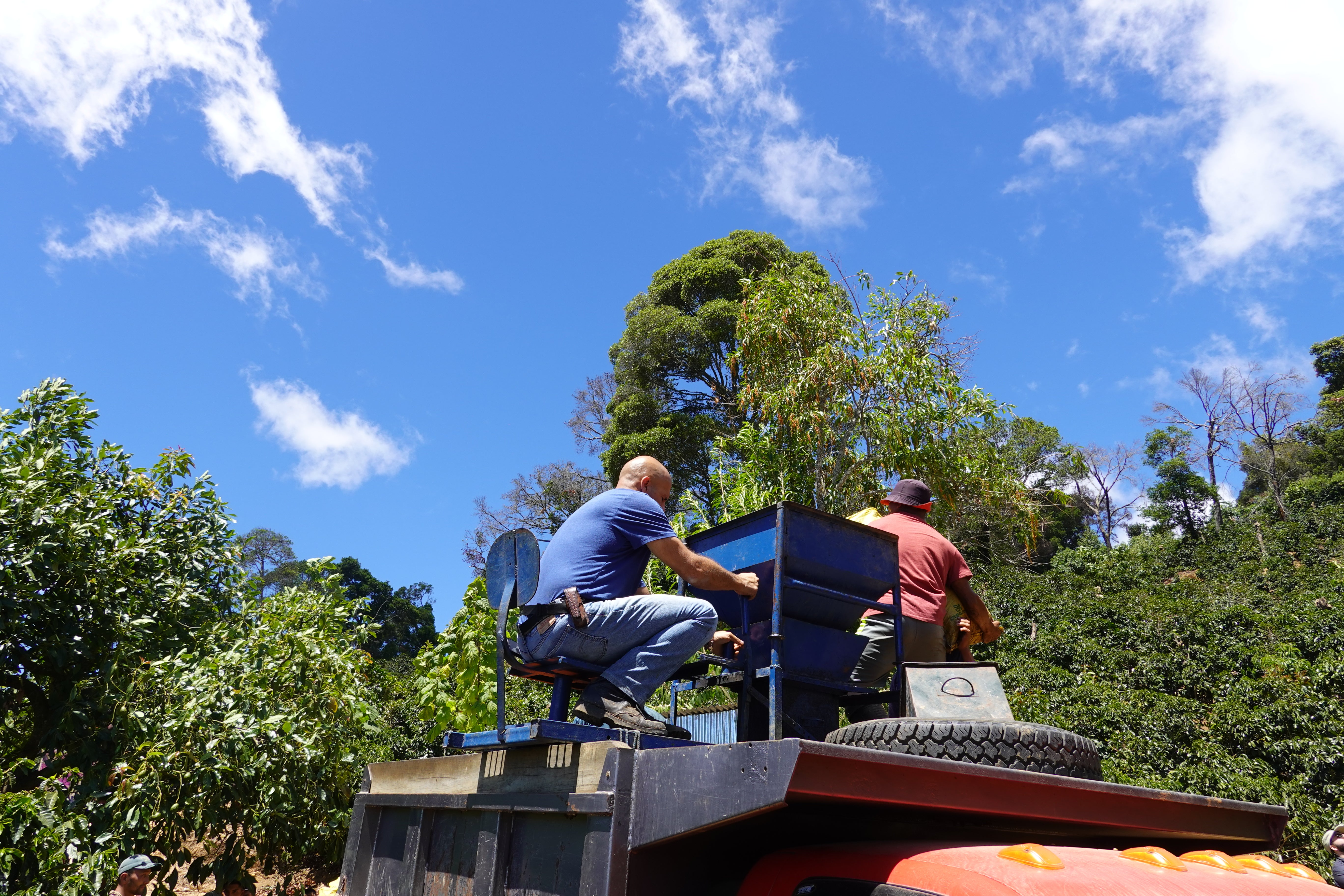
كوستاريكا - سوليس وكورديرو
طبيعي لاهوائي
المزرعة: فينكا هيغيرونال - سوليس وكورديرو
الصنف: سنتروأمريكانو F1
المعالجة: طبيعية لاهوائية
ارتفاع: 1600 متر فوق مستوى سطح البحر
المنتج: أوسكار أنطونيو أورينا
المنطقة: سانتا ماريا دي دوتا، سانتوس
ملاحظات التذوق: الفراولة، الشوكولاتة، البرقوق الأحمر

يتم إنتاج هذه الدفعة الطبيعية اللاهوائية بواسطة Oscar Antonio Ureña Ureña في Finca Higueronal وتتم معالجتها في Solis&Cordero Micromill.
بدأ أوسكار أنطونيو أورينا زراعة البن في عام 2008. ومن أجل تقليل تكاليف المدخلات، قام بتجربة أصناف جديدة - مثل الصنف الموجود في هذه المجموعة F1 - والتي تتمتع بمقاومة أكبر للآفات والأمراض. بالإضافة إلى مكافحة الآفات والأمراض، تقدم هذه الأصناف الجديدة أيضًا نكهات ومذاقات جديدة ومثيرة.
تأسست شركة Solis&Cordero Micromill في عام 2018 على يد عائلة Solís Cordero لدعم صغار المزارعين في منطقة سانتوس. تقدم المطحنة مجموعة متنوعة من الخدمات بما في ذلك معالجة الكرز وبيع القهوة المتخصصة إلى وجهات دولية وبيع القهوة المحمصة في كوستاريكا والاستشارات بشأن المعالجة ومراقبة الجودة وخدمات التصدير. بالنسبة لصغار المزارعين الذين يعملون مع Solis&Cordero، تساعدهم المطحنة على تمييز قهوتهم من خلال الحفاظ على إمكانية التتبع على مستوى المزرعة واستخدام طرق معالجة مبتكرة تركز على الجودة لتحسين القهوة بشكل أكبر.
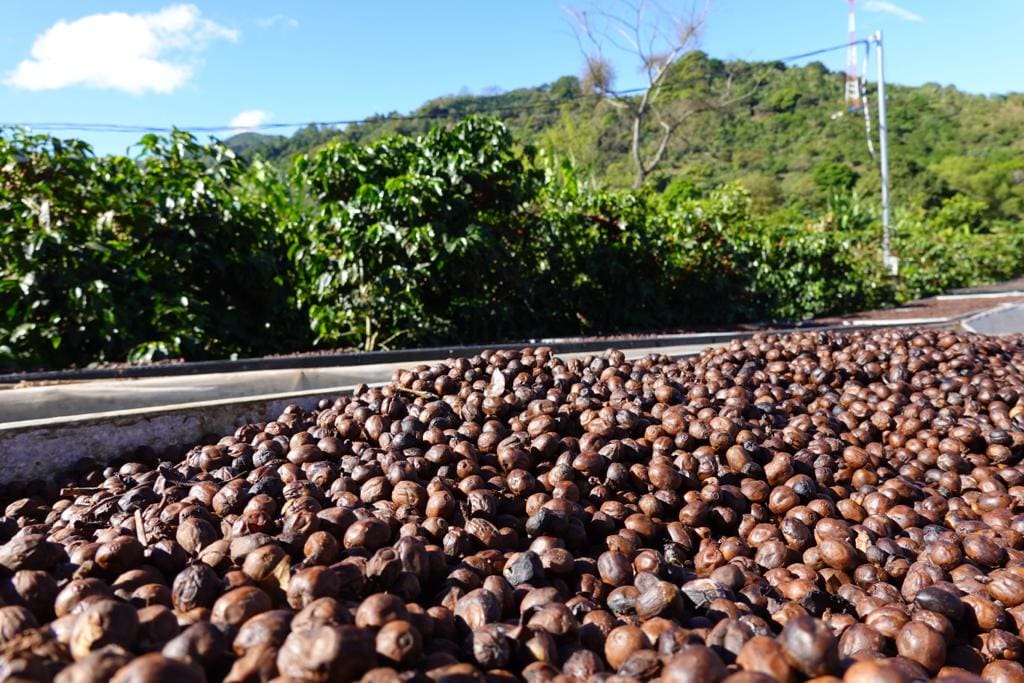
زراعة
F1 تعني الجيل الأبوي 1، وهو الجيل الأول من النسل الناتج عن عملية تكاثر محكومة. ومن المهم أن نلاحظ أن نباتات F1 ليست مستقرة وراثيًا ولن يكون لنسل نباتات F1 نفس خصائص نبات F1.
الحصاد وما بعد الحصاد
يقوم أوسكار وعائلته باختيار الكرز الأحمر الناضج بعناية وتسليمه إلى مطحنة Solis&Cordero Micromill. عند الاستلام، يتم فحص الكرز وغسله في ماء نظيف. ثم يتم تخمير الكرز لاهوائيًا في خزانات محكمة الغلق لمدة 96 ساعة. بعد التخمير، يتم وضع الكرز على أحواض مرتفعة لتجفيفه. يستغرق تجفيف الكرز حوالي 18 يومًا.
القهوة في كوستاريكا
بفضل الابتكارات الدؤوبة والعدد الهائل من أصناف القهوة والمعرفة التقنية الواسعة والاهتمام بإنتاج القهوة، أصبحت كوستاريكا واحدة من أكثر الدول تقدمًا في إنتاج القهوة في العالم.
أمريكا الوسطى.
تلعب الظروف المناخية في البلاد أيضًا دورًا في الجودة العالية للقهوة المنتجة. هناك ثماني مناطق لزراعة القهوة: جواناكاستي، ووادي ويست، وتوريالبا، وفالي سنترال (الوادي المركزي)، وتريس ريوس، وبرونكا، وأوروزي، وتارازو، وهو جزء محدد من فالي سنترال.
كما أصبحت كوستاريكا رائدة عالمية في مجال تتبع إنتاج البن والاستدامة. فتسعون في المائة من مزارعي البن البالغ عددهم خمسين ألف مزارع في البلاد هم من صغار المزارعين، واليوم يسلم كثيرون منهم كرزهم إلى مطاحن صغيرة متخصصة تعمل غالباً على معالجة الكرز وفقاً لمواصفات المنتجين للحفاظ على جودة الدفعة الواحدة أو المزرعة الواحدة.
إن صعود عملية معالجة المطاحن الصغيرة، في حد ذاته، هو تطور حديث نسبيًا. فقبل أوائل العقد الأول من القرن الحادي والعشرين، كان من الشائع أن يقوم المنتجون الأصغر بتسليم كرزهم إلى مطاحن مملوكة للتعاونيات. ومع تطور أسواق التخصصات المربحة، بدأ المزيد والمزيد من المزارعين في إنشاء مطاحن في مزارعهم الخاصة، مما منحهم سيطرة متزايدة على المعالجة والمزيد من التأكيد على "قصة التتبع" المهمة جدًا لشريحة السوق المتنامية. ثم تقدم المطاحن ذات القدرة الزائدة خدماتها للمزارعين المجاورين، وتقدم مجموعة من طرق المعالجة للدفعات الصغيرة جنبًا إلى جنب مع إمكانية التتبع الكامل لمحمصي القهوة والمستوردين. لقد مكن النظام مزارعي القهوة الصغار إلى المتوسطين في كوستاريكا من تقديم مجموعة واسعة من المنتجات المتمايزة. واليوم، من المرجح أن تحمل الدفعات المتخصصة من كوستاريكا اسم المطحنة الصغيرة حيث تتم معالجتها مثل اسم المزرعة المنتجة.
إن أنماط الطقس الجافة وغير المستقرة في كوستاريكا تجعل زراعة البن أكثر صعوبة. فقد أدت مواسم الجفاف الطويلة وأنماط الطقس غير المتوقعة إلى القضاء على إمكانية إنتاج البن العضوي.
ومع ذلك، اتخذت الحكومة والمزارعون خطوات فعّالة لحماية البيئة. كما تؤثر بعض هذه القيود على طرق المعالجة التي اشتهرت بها قهوة كوستاريكا.





